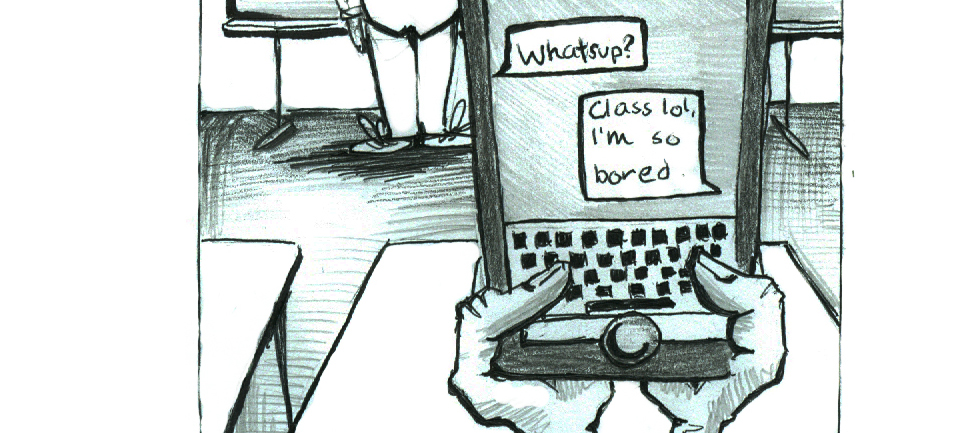In September 2016, Katie Brooks wrote an article for The Marlin Chronicle asking an important question, “Will Wesleyan Transition? VWC lacks institutional policies for students with non-binary gender identities.” Her question was brought about by President Barack Obama issuing the “Dear Colleague Letter on Transgender Students” in May 2016. Brooks wondered whether our administration would be prepared to accommodate transgender people to meet the new guidance. It caught the eye of Spectrum in the student organization’s first few months of being active. Spectrum represents Virginia Wesleyan’s LGBTQ+ community. I served as its first president and working with the incomparably dedicated students that make up Spectrum has been my greatest accomplishment to date.
We read Brooks’ article and found that the questions posed to the administration lacked substantial answers. In response, we planned our first event. To commemorate the lives of transgender people who have lost their lives to hate crimes or suicide, we had a public display in Batten for three days leading up to Transgender Day of Remembrance. We also collected signatures to petition for transgender rights to be protected with written policies. In only three days, we managed to collect 320 signatures.
Our petition outlined the two main policy areas that we found to be particularly weak. We asked the administration to write policies to address the following: making campus buildings, residential housing and guest policies more inclusive and ensuring that prospective and current students are not forced to select a gender that conflicts with their gender identity
Once we had the petition, Dr. Kathleen Casey, Vice President of Spectrum, Melissa Fisher and I secured a meeting with President Miller and his cabinet. Casey prepared Fisher and me for weeks as we put together our presentation. Spectrum dedicated weeks to researching our peer institutions to help offer solutions.
On the day of our first meeting, we explained the policy areas, our research and possible solutions. Fisher strongly concluded saying, “We should tolerate differences of ideas, but people should be accepted and have their basic humanity respected . . . We should take active steps to make transgender people feel just as accepted on this campus as any other person does.” President Miller and the others present then had time to ask us questions. Because of the time dedicated by Dr. Casey, other supportive faculty and our fellow members of Spectrum, we were prepared.
We had many follow up meetings over the past year and a half with President Miller, Provost O’Rourke and Vice President of Student Affairs, Keith Moore. The process of pushing the policies through was exhausting. The administration asked us to do a lot of our own research at almost every turn and there were times it was implied that this issue was not a priority. Thank you to Dr. Casey, Melissa Fisher, Bayli Foley, Kayla Bennett, Bella Glaze and Azania Inman for your resilience throughout the whole process. Thank you to Julie Chovanes, the transgender rights lawyer who taught us all how to create a more trans-inclusive campus and for changing hearts. We all went through moments of defeat. We were concerned that all of the work we had done was going to be in vain. We were desperate for the administration to see the urgency and importance of preserving the dignity of a people who have struggled in silence on our campus.
In January of this year, we received an email from Provost O’Rourke. Attached were the policies and research we had worked on in an official university document with an assurance that they would be put in place in the fall semester of 2018. The joy and relief we collectively felt was indescribable. A core team of seven queer women, with outside support, successfully fought for the voiceless members of our community. We persisted through the many late nights of writing countless pages to defend what we believed in, the explicit protection of basic human rights for transgender members of our VWU campus community.
I feel honored to have led the organization that fought to make this a reality. I am grateful to an administration that agreed to meet with us regularly, despite the occasional miscommunications. It is a privilege to be able to tell our story, a privilege I do not take lightly. Sharing this story is a momentous occasion in our institution’s history. Students are capable of changing the culture of our campus through written policy. A precedent has now been set. We stand as witnesses to the possibility once thought to be impossible by student leaders. We tell our story to empower other students with the roadmap to fight for the betterment of our university. It was very difficult, as important causes always are. Our victory is a story of persistence.
Riley Conrad
rmconrad@vwu.edu

